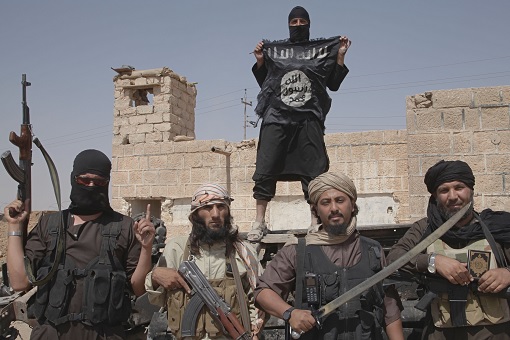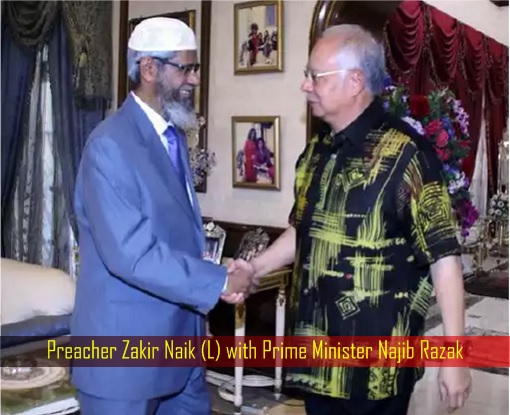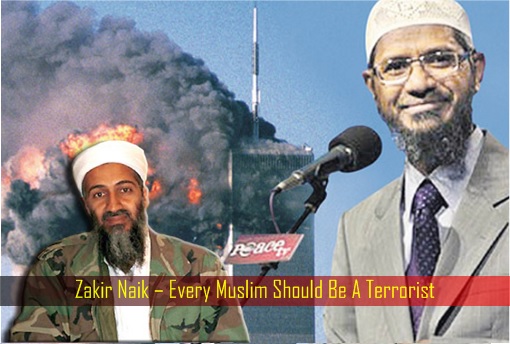As people continue to digest the fact that at least 290 people were killed, including at least 39 foreign tourists, and more than 500 injured in a series of suicide bombs tore apart churches and hotels across Sri Lanka on Easter Sunday, questions have been raised if the radical Muslim extremists could have been stopped before they blew themselves up.
Intelligence services in India and the United States reportedly had told Sri Lanka of the threat in early April, as a memo dated April 11 has emerged warning of a potential attack. But early warnings had emerged earlier than that. On April 4, foreign intelligence agencies told Sri Lankan officials of a potential plot to launch suicide attacks against Christian churches and tourist spots.
The next warning came five days later. On April 9, the country’s Defense Ministry informed the Inspector General of Police of the alleged plot, even named the group believed to be behind the plan – the Nations Thawahid Jaman or National Thowfeek Jamaath (NTJ). The memo compiled by Sri Lankan security officials was so specific that it even gave a list of suspects.

CNN reported that foreign security services had repeated their warnings in the days and hours before the attack. In fact, one warning came ten minutes before the deadly bombings were started. Unfortunately, all the warnings had fallen on deaf ears. It didn’t reach the higher authorities due to internal politics between President Maithripala Sirisena and Prime Minister Ranil Wickremesinghe.
But even if the authorities were aware of the potential terrorist attacks, what could they do? Potential suicide bombers who walked into three churches or checked into three upscale hotels in Colombo would not be subjected to enhanced security checking anyway. Worshippers at church and hotel guests lined up for breakfast provide the best cover for attackers.
No individual or group has made a formal claim of responsibility for the horrific Easter Sunday bombings. However, the government has blamed a local militant group NTJ (National Thowfeek Jamaath or Nations Thawahid Jaman) as the terror group responsible. The authorities also believe the little-known radical Islamist organization had help from “an international network”.

Apparently, the NTJ was a spin off from an Islamist organization called Sri Lanka Towheeth Jamath (SLTJ) several years ago. The NTJ was linked to vandalism last December that targeted Buddhist temples in Mawanella, central Sri Lanka. The NTJ keeps such a low profile that they only update its Facebook page once every few weeks. Their Twitter page hasn’t been updated since March 2018.
According to the Jerusalem Post, unconfirmed reports revealed that the suicide bomber and the mastermind behind the attack on the Shangri La hotel has been identified as Islamic extremist Moulvi Zahran Hashim. An imam, he was a prolific lecturer for NTJ. CNN reported that Hashim also wanted to attack the Indian High Commission in Colombo earlier this month, but the attack was thwarted.
Imam Moulvi Zahran Hashim has a history of racism and Islamic supremacy. He had also posted several YouTube videos during which he preaches comments that could be considered incitement. In one of his videos, the radical Muslim extremist says – “What can Sri Lankan Muslims do for Dr. Zakir Naik?”

If the name Zakir Naik sounds familiar, that’s because the Indian Islamic preacher is one of Malaysia’s most controversial “Permanent Residents”. Infamous for stirring hate with his lectures and messages, Mr. Zakir is a wanted man in India. So, the burning question is – did the mastermind of Sri Lanka terror attacks inspired by Zakir Naik?
Last month, India’s Enforcement Directorate (ED) has accused the controversial Muslim preacher or money laundering – using his Islamic Research Foundation, meant for the social welfare of the Muslim community, to organise dubious donations and diverted the proceeds to purchase properties. Zakir Naik allegedly diverted assets worth RM113 million (US$28 million).
The Times of India reported that these assets included at least 20 flats in the cities of Mumbai and Pune in India. The India’s ED had on March 21 arrested jeweller Abdul Kadir Najmudin Sathak, an aide of Zakir, for allegedly assisting him to transfer funds of dubious origins from the UAE to him.

While Zakir is a wanted man in India, having had his citizenship revoked, he was granted permanent resident by former Najib government. When the new government of Mahathir Mohamad took over, the prime minister said that Malaysia would not deport Zakir “as long as he is not creating any problems” in the country.
Zakir Naik, whose sermons are already banned in Canada and the UK, was popularly known as the Muslim preacher who inspired the terrorists who killed 22 people at a Dhaka restaurant on July 1, 2016. In one sermon uploaded to YouTube in 2009, he was asked by an audience member if a suicide attack could ever be justified.
Mr. Zakir once controversially said that suicide bombing may not be “haram (forbidden)” if the situation demands it, justifying the situation where suicide attacks are allowed – “If the situation demands, like in Palestine … and they cause a damage to the opponent, as a last resort, with guidance from a scholar, so with guidance from the Koran, as a last resort, it can be used”.

The preacher had once claimed that Al-Qaeda leader Osama bin Laden was not a terrorist. He said – “If Osama-bin-Laden is fighting enemies of Islam, I am for him. If he is terrorising America – the terrorist, biggest terrorist – I am with him. Every Muslim should be a terrorist. The thing is that if he is terrorising the terrorist, he is following Islam.”
The snake oil salesman also justified keeping sex slaves, claiming such practice is permitted in Islam. He said in 2010 – “There are many verses in the Quran which say you can have sex with your wife and with whatever your right hand possesses.” Interestingly, Zakir Naik was quick to condemn the Sri Lanka terror attacks, probably a pre-emptive strike to prevent him from being linked to the NTJ.
FINANCE TWITTER




No comments:
Post a Comment
Note: Only a member of this blog may post a comment.